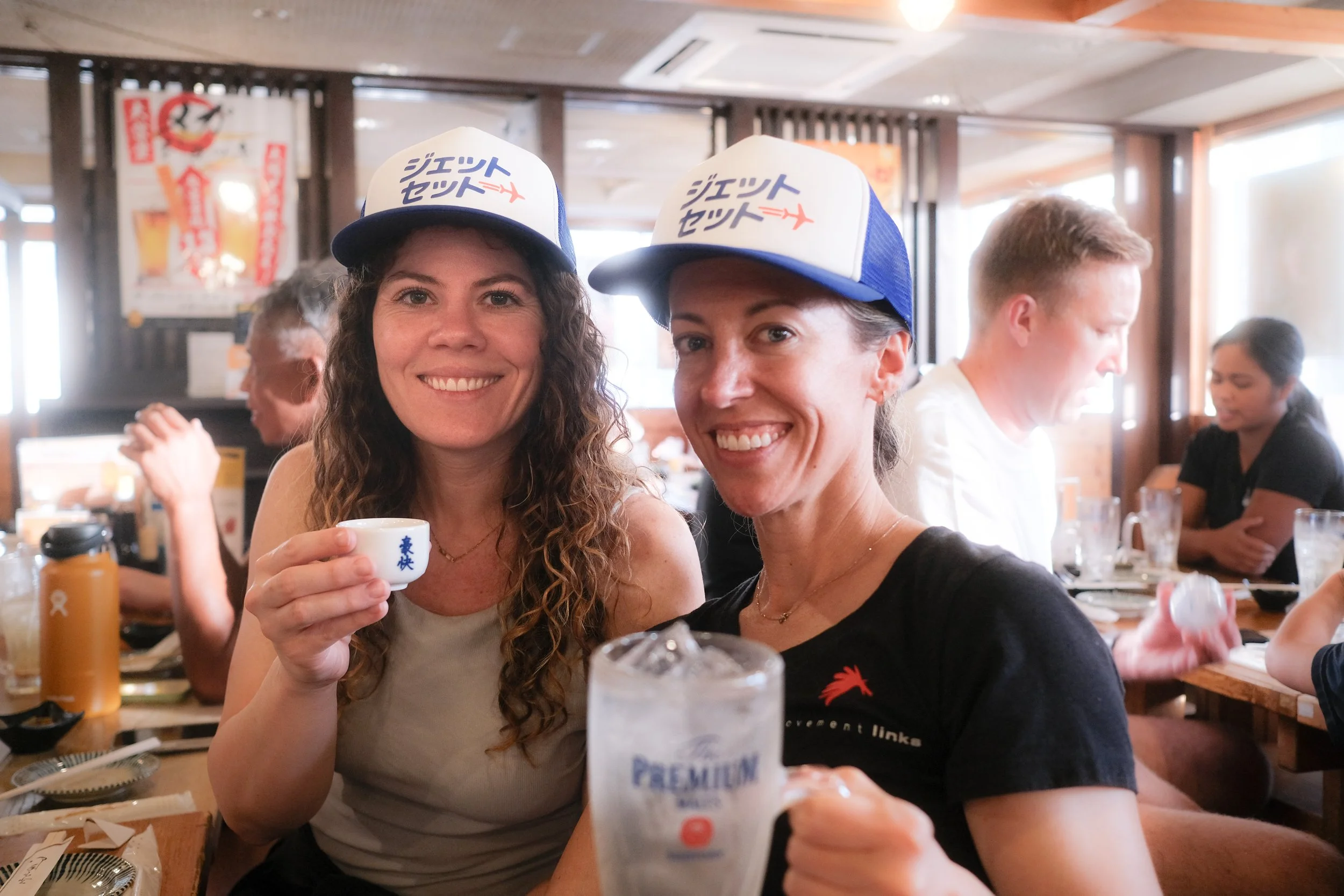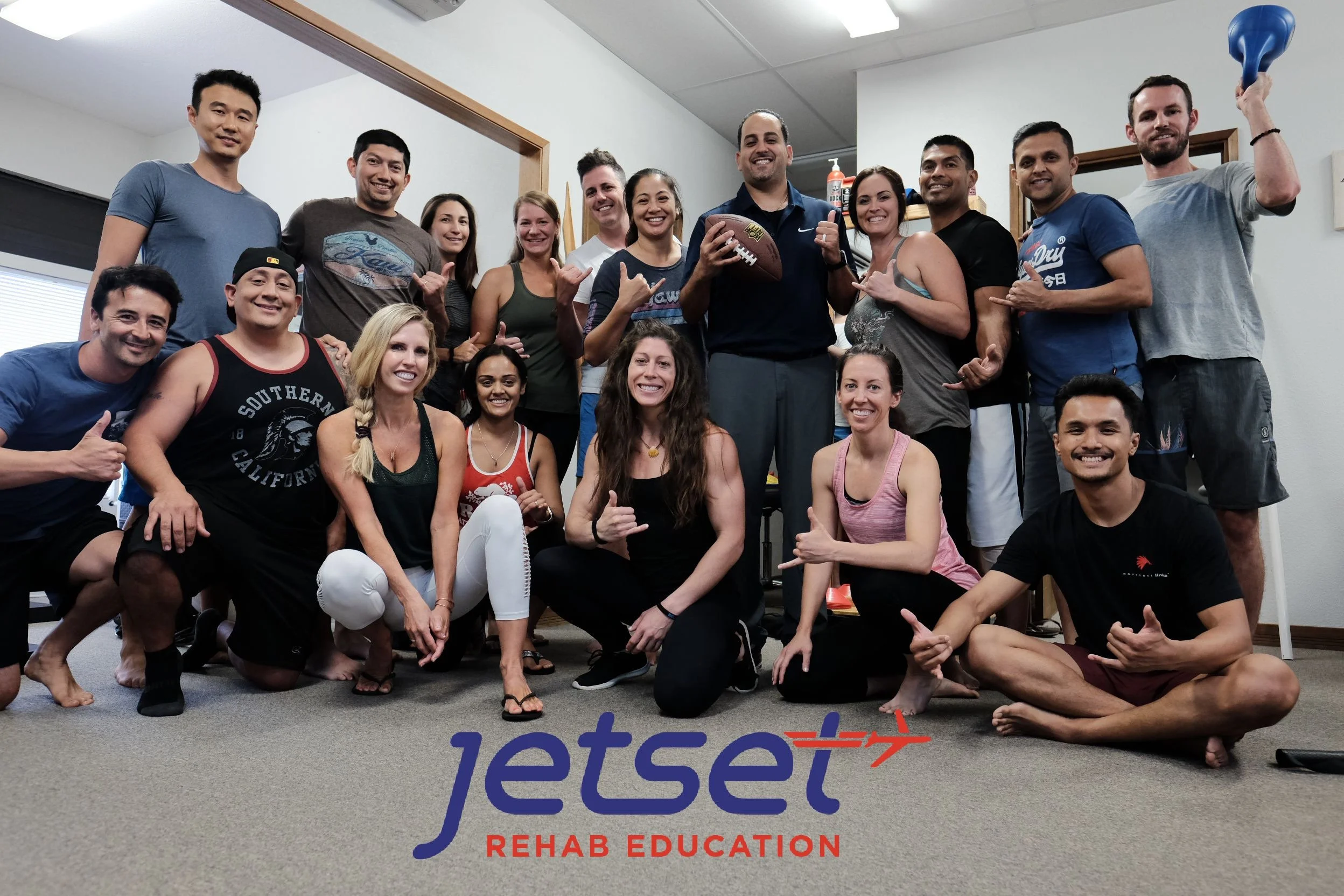Jetset Rehab Education Co Owner Randal Glaser interviews jetsetter Kristen Yanez on why she is going to Vegas to learn about TMJ.
Read MoreRobin Pottukalam with his new Fitbit. He explains why he is taking a Jetset class.
Read More
Networking in a Physical Therapywhat Fight Club taught me.
Networking is one the core values of the JetSet experience. It is a value that can enhance course understanding and expand a therapist’s understanding of their profession via interactions with fellow participants.
In the movie Fight Club, Edward Norton’s character, looked forward to his flights on an airplane. He realized of the countless hours spent on a trip, the most memorable involved networking with his “single serving friends” that sat next to him. His character (albeit twisted and cynical) goes on to meet a specific friend, Tyler Durden whom transforms his life forever. If you are physical therapist like me, you have a little bit of Ed Norton’s character in you. You have spent countless hours in school learning your craft and then additional hours in continuing education courses refining your skills. However, you realize that like his character, the journey is only part of the experience; the interactions with your colleagues are clearly as important.
Attending various continuing education courses over the years, I have realized that part of what made course experiences valuable was my interactions with colleagues. Attending a recent lecture on the DNS approach, I had questions about handholds that my classmates were able to critique and correct. Over the course of the one-day lecture, I found the interactions with my fellow colleagues bridged the gaps and made the class an even more meaningful experience. Additionally, networking with my colleagues during the course provided valuable clinical pearls that eventually lead to positive outcomes in the clinic.
Learning from my colleagues enriched my experience of the course content. However, networking during breaks and lunches also gaveme a better understanding of my profession. At a prior course, I learned how newly passed direct access law were affecting clinicians with regards to care and payment. In prior courses, I’ve even had the opportunity to meet international PTs whom discussed their practice in their respective countries For example, back pain patients check into the hospital for their symptoms in certain European countries & ACL patients can spend months rehabbing in the hospital in Japan!Having networked with my colleagues showed me how diverse our profession is internationally.
Networking has also illustrated how techniques can be utilized differently in specialties outside of orthopedics. In an MSIcourse I took a few years ago, I encountered therapists whom were utilizing the concepts learned on vestibular and neurologic patients.This brought to light how clinicians use“orthopedic” concepts in specialties not thought of as normally utilizing orthopedic skills.
Networking and interacting with many of my colleagues over the years has provided me with unique experiences that have enriched course content and broadened my understanding of our profession as a whole. In understanding the effect these experiences have had over the course of my career, I truly feel as lucky as Edward Norton’s character did on his plane when he met his friends. Looking back, if I had avoided these opportunities to network, my growth as a professional and a person surely would have been hindered. At your next class, remember to embrace your inner Edward Norton and reach out to your fellow colleagues. You may find that your class experience may be that much more beneficial.
Jay Bhatt is a Physical Therapist whom is an OCS and Published in JOSPT. He is one of the founders of JetSet Rehab Education.
Read MoreHow should Physical Therapists learn? It may not be a classroom setting.
I am a Physical Therapist in a primary care setting. I work next to and co-treat patients with Doctors throughout the day. Because of
this, I am able to see a lot of the differences in how we have been educated, how we think, and how we clinically reason. This difference has
extended to how continuing classes have been designed.
As I was talking with one of my Dr. colleagues he mentioned that he was going on a cruise to the Bahamas with his family. He was
taking a continuing education course and was planning on getting out of class early to enjoy the sun, family time and simply not being
in his office. “I bet there won’t be a lot of learning over there, right?” I quipped. “Actually, I went last year and I learned a lot!” “I still
remember a lot from those classes, something about short classes and having more time to discuss with my classmates afterwards just
helped it stick.” He explained.
This I found, is not only a common theme in Doctor classes but across our lives as well. If I think back to lessons I learned both in rehab and
out of it, I can point to many instances where the “a-ha” moment was achieved outside of the classroom. This is backed by other
reports as well. In a Rasmussen poll 81% of respondents reported learning more outside of the classroom than in the classroom.
According to Paul Hudson, writer for Elite Daily, the classroom/school setting is set up for short term goals: semesters, grades, report
cards. Life doesn’t always work this way. His article further explains that In real life networking and long-term goals are most often
what helps someone progress professionally.
There are countless examples of people who suffer great pains to learn Algebra in school only to thrive when asked to do the same
problem as it applies to their job. Examples include a chef who has to triple a recipe or a carpenter asked to calculate area, volume,
and circumference when building cabinets. As a Physical Therapist, my key moments came with mentorship in the clinic, not the
classroom. In addition, most PTs will tell you that they have learned far more after they graduated as a clinician, than from school.
I don’t want to conclude that the classroom is a bad way to learn, in fact, I do not see any other way to teach valuable information to a
large amount of people. What I do see however is that we have fallen into a rut as far as teaching in most continuing education
classes. My question: Is there a better way? Can we make information “stick” if we change the environment? Is the Doctor’s class in
the Bahama cruise onto something?
Many other professions have already started vacation / education classes. The reason for this seems to be more complex than improving attendance. There is
the additional benefits that come with travel. These lead to networking opportunities and participation in activities after the class. These
lead to professional connections, more access to instructors, and even friendships. Consider this quote from the U.S. Ambassador for
the Asia-Pacific Economic Cooperation on why he held his most notable meetings at a vacation spot in Hawaii, “When people are
relaxed, they think more clearly, and when they think more clearly, they’re more likely to come to conclusions that result in
agreements.”
I may be biased but I can’t think of a profession that could benefit more from this than Physical Therapists.
Randal Glaser PT, DPT, OCS is a Physical Therapist in California and is currently working on developing continuing education courses for
JetSetRehabEd.com.
Read More










